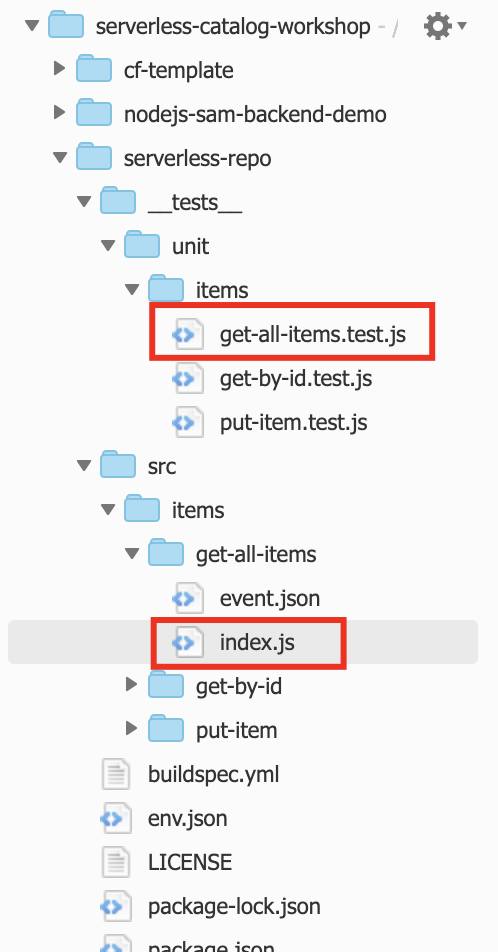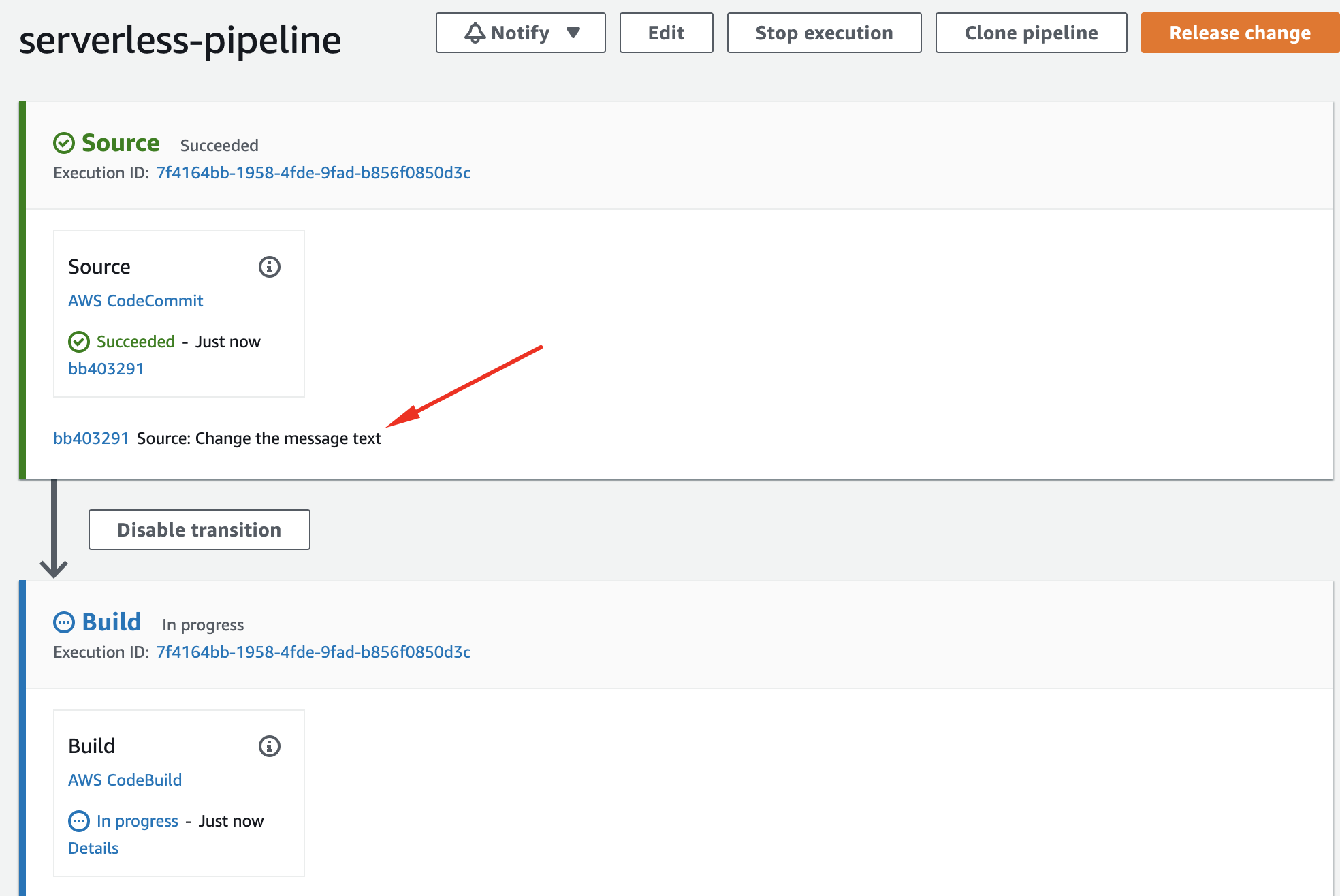Trigger New Release
Update Our Application
So far we have walked through setting up a multi-environment CI/CD for our serverless application using AWS CodePipeline and now we are going to make a change to the AWS CodeCommit repository so that we can see a new release built and delivered.
Open your Cloud9 environment and go to your serverless-repo directory.

Navigate to /src/items/get-all-items/index.js file. Change the the code in this line:
response = {
statusCode: 200,
headers: {
'Access-Control-Allow-Origin': '*'
},
body: JSON.stringify(items)
}
for this code:
response = {
statusCode: 200,
headers: {
'Access-Control-Allow-Origin': '*'
},
body: `This new service now has these items: ${JSON.stringify(items)}`
}
Since we’re checking Unit Tests in our pipeline, we have to alter the test itself too. Navigate to /_tests_/unit/items/get-all-items.test.js file. Change the the code in this line:
const expectedResult = {
statusCode: 200,
headers: {
'Access-Control-Allow-Origin': '*'
},
body: JSON.stringify(items)
}
for this code:
const expectedResult = {
statusCode: 200,
headers: {
'Access-Control-Allow-Origin': '*'
},
body: `This new service now has these items: ${JSON.stringify(items)}`
}
Let’s commit our changes back to our CodeCommit repository.
cd ~/environment/serverless-repo
git add .
git commit -m "Change the message text"
git push
After you modify and commit your change in AWS CodeCommit, in approximately 30 seconds you will see a new build triggered in the AWS CodePipeline pipeline.

It might take around 8-9 minutes for the whole pipeline to complete.
Confirm the Change
Let’s test our Development API.
export ApiUrl=$(aws cloudformation describe-stacks --stack-name serverless-service-Dev --output json | jq '.Stacks[].Outputs[] | select(.OutputKey=="ApiUrl") | .OutputValue' | sed -e 's/^"//' -e 's/"$//')
echo "export ApiUrl="$ApiUrl
curl -X GET $ApiUrl/items/
This new service now has these items: []